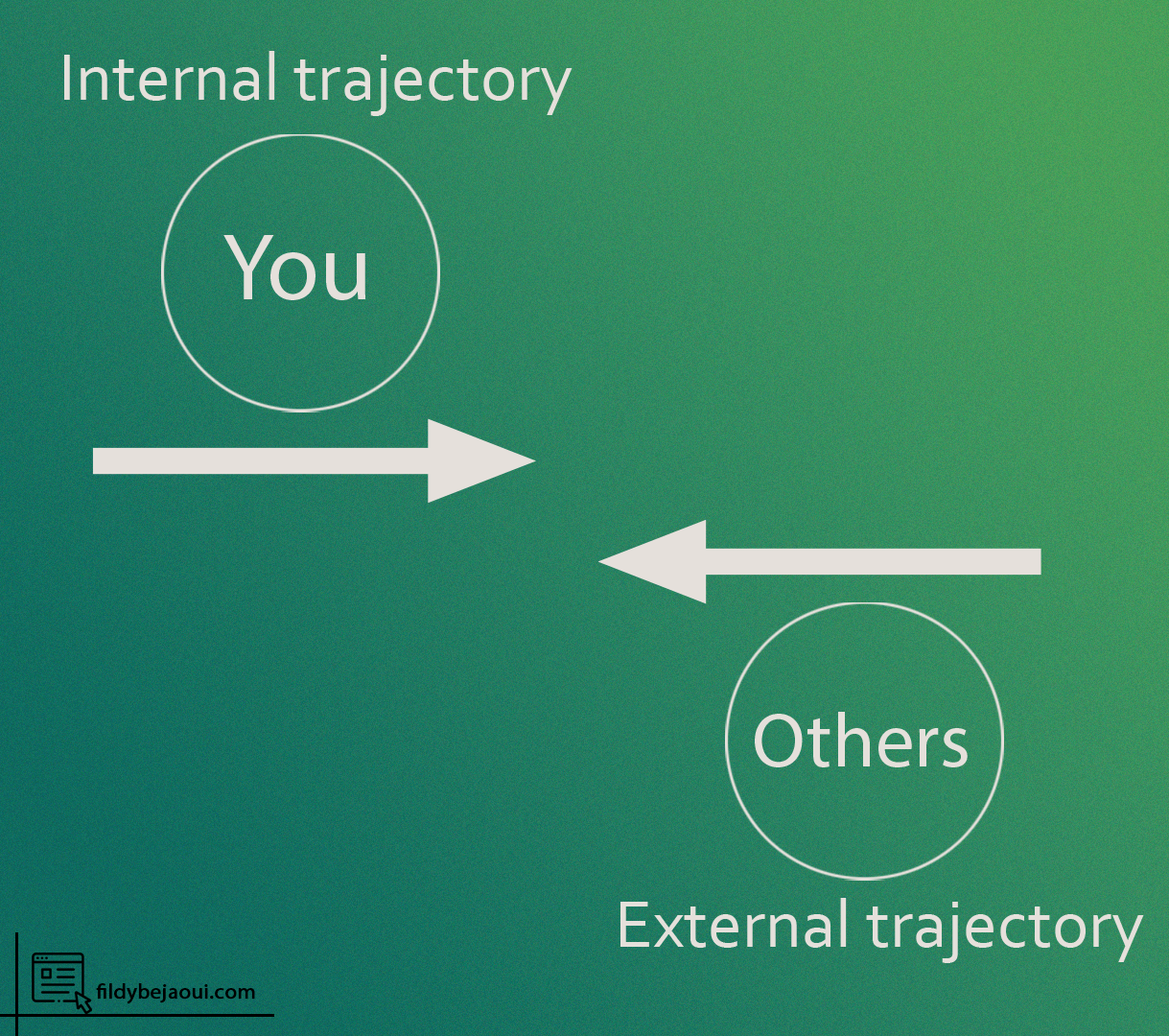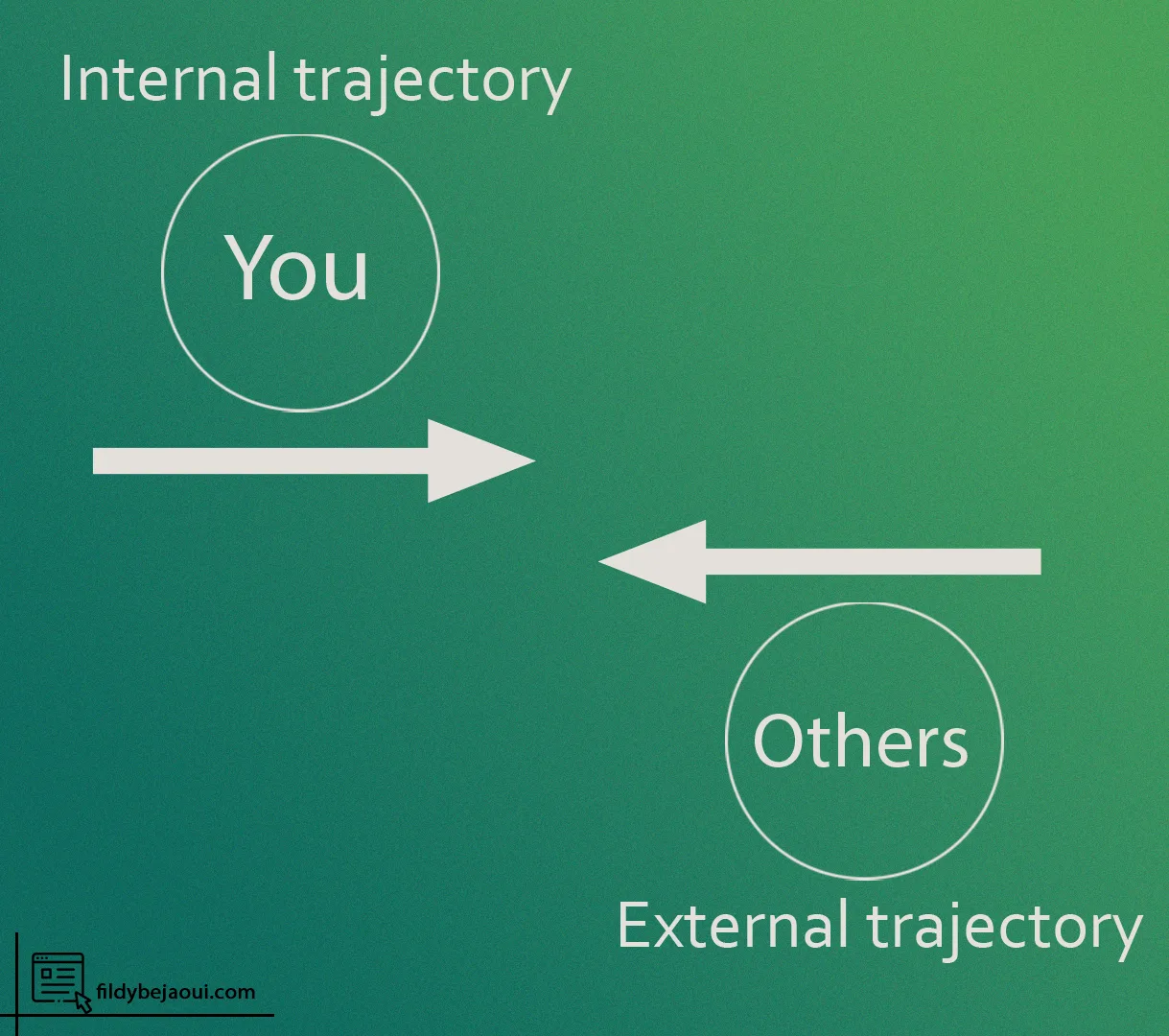Is Lifehouse’s “Everything” about God or about a Lover? / Lifehouse’s Everything Meaning & Interpretation
Answering whether the timeless song “Everything” by Lifehouse is about God or about a romantic relationship/lover, and explaining how the…
Reactions to Pain
Subscribe
Related
In my writings, I often interchangeably refer to what animates one’s self as consciousness, the mind, and finally, as “you“. Dancing between these terms when…
Love is. That is a fundamental part of reality. But dysfunctions—on the part of former victims -> abusers, lead to this most valuable of currency…
Answering whether the timeless song “Everything” by Lifehouse is about God or about a romantic relationship/lover, and explaining how the god interpretation came to be…
Table of Contents
A reaction to pain is how the mind contracts in the face of unpleasant or/and destructive feelings. It is a crucial part of the journey taken by a consciousness when entering existence and beginning to experience it.
Responses to pain are always dictated by two things: one’s emotional reasoning x the nature of external circumstances. As I teach in “emotional reasoning”, your responses to an external event, will be specific to you and you alone, based on the type of signals sent to your mind by that event, then based on how you interpret that event.
To study your responses to things when juxtaposed next to the trigger circumstance, allows you to trace back what your reasoning is all about, and therefore, what is it that you are truly seeking, what is it you truly want from a situation, and therefore, where is it that you’re going.
Because in the end, reactions to pain are the precursors to false solutions are directly the way we adapt ourselves to get what we want, based on the traumatic, unmovable obstacles we encounter.
Therefore, understanding how we respond to a specific event (reactions to pain) helps us understand not only what we want, but how to originally get there. We can locate the original way we would have gone about doing something by understanding our reasoning (=ourselves), and therefore get ourselves back on track towards happiness.
Below are different responses that come when the mind is confronted with pain.
*Like all other posts, this composition is non-exhaustive and is updated regularly whenever I find something new to add.
▶ What’s the difference between a reaction to pain and a false solution?
↳ A false solution is a mechanism you adopt to survive something, which becomes a permanent habit or mechanism consciousness will automatically jump to when confronted with signals connected to the original problem that caused the mechanism. A reaction to pain is just a reaction, but not in itself a way to handle the problem:
A destructive thought can be: “There is not enough money.” You may respond to the pain of that false statement using some of the ways listed below, but how you handle the implications of the statement itself will become a false solution (= you may initially choose to escape the awful feeling, then to compensate with the implications of the fact itself, you may just rush to overwork yourself to bring in more money).
🠞 The real solution, in most instances, is to realize that the painful thought is not factual. (to be defined specifically and in context)
All responses to pain occur when there is an inability to resolve a conflicting, negative situation. The conflicting situation is one that goes against something we want: while we try to go right, that thing tries to go left, and the pressure put on us is painful because it implies we are not receiving something that can bring us fulfillment. It’s the equivalent of being stripped of your purpose and reason for being by external circumstances (-> as well as the cause of depression and suicidal tendencies).
When that external thing is irremovable, we move. If the obstacle towards that path is immovable, we budge. By doing so, we ourselves get off the road. That in itself is one of the most painful experience one can feel while alive.
Reactions to pain are one of the things that immediately occur when that happens, followed with false solutions in the long run to find a semblance of resolution to the conflict, which creates broken patterns.
List of reactions to pain:
“God has forsaken me” / “Life hates me” / “I’m being punished” / “Can I ever be happy?”
1. Avoidance
Key part of avoidance is remembering the origin of the conflict, but avoiding it because of the inability to resolve it. This bleeds into escapism because, once you have decided to avoid an issue, one of the best ways to do it is to escape from it. So you begin a three parts
2. Escapism
Escapism, unlike repression, is characterized with still consciously retaining awareness of a thing. Consciousness knows what it’s doing just fine, but chooses to escape, avoid, keep at bay, or not fully feel a certain something to minimize its impact. That can translate into forms of procrastination, keeping certain emotions and thus their processing at bay, modern day habits of endlessly scrolling through social media (-> a practice done specifically to avoid the inside of your head), etc.
Escapism can also happen through fiction, or as it used to be, watching television,
3. Repression
Key part of repression as opposed to avoidance is the lack of remembering of the event or conflict. The core of the unpleasantness: the conflict, its stakes, and the resolution one wishes to have, is pushed back to the point of forgetfulness and lack of understanding of that thing. That’s a lack of awareness, what makes you less conscious, and therefore less alive.
Repression happens when you don’t know how to deal with something, so you push it in the back. It’s the equivalent of sweeping something under the rug that is your subconscious. You lose conscious sight of something, that something being typically an unresolved something: a dilemma, or sets of negative feelings, that you’re trying to find a positive outcome for.
Repression can also happen unintentionally when something goes unacknowledged for too long: too long, in this context, meaning a few minutes to a few hours. It’s enough for, as an child, to have an upset emotion that the child cannot handle on their own, and excepts the parent to help resolve it, but the child goes unacknowledged. When the emotion stands there unresolved for too long, the situation becomes about the lesser evil (see: the model of memory retention): to offer immediate resolution to the discomfort created by the situation of feeling such unpleasant emotions that are unresolved, the immediate action of consciousness is to just put the conflict in the back, so as to no longer feel that unpleasantness. No resolution has actually occurred -> consciousness’ go-to resolution seeking action, but in the absence of that first, actual resolution, then the mind must make do to create comfort in the immediate moment.
Either way, repression occurs when the mind doesn’t know how to handle a thing, so its default option is to stuff it in the back. It’s a conscious decision from the mind to willfully bury something, because the conscious knowledge of it is too much for consciousness to handle consciously.
The result is consciously losing track of a thing, while knowing it’s still there somewhere, and yet gradually forgetting what it is about, and about its existence. That knowing floats in the landscape of your mind like a cloud you know is there but you can’t see or sense.
🠞 Repression can sometimes be confused with the inability to trace back a feeling to something that needs to be unearthed for the first time, like a precise event, because the event in question happened before the mind started to officially record (as is the case in infancy trauma). The sensation of obscurity, of being in the dark, can feel similar to repression. But repression is primarily about the suppression of something you were once conscious (aware) of, whereas infancy trauma is something you must become aware of for the first time.
◼ In this context, the word “repress” is used with its etymological meaning of prefix “re” meaning to do again + “press” meaning “to push against.” The idea, as described, is that there was a previous awareness of something, until it was shoved to the back after it had surfaced.
One common response while on the path is to respond to the pain of an event through self-pity. There is this journey which we all go through, which I will go into more details in the future,
Every single one of these techniques occur when horrific feelings enter the mind’s landscape. Consciousness feels assailed, and feel as though its very personal and private space where it exists is riddled with obstacles and hurdles it doesn’t know how to clean up. So it begins to recede from its own personal space to re-establish some comfort, -> the goal being to obtain a form of resolution, albeit a broken one because the problem is not resolved.
A fitting metaphor is to compare it to an apartment; you reside in your home, and most rooms are dirty, messy and fallen apart. The place was dirty when you arrived, but it’s still where you are, or, the place gradually became dirty in time, but it’s still where you must be, since there is no escaping your own head. And you’ve got no means to fix up the place, despite the will to do it and despite attempting to do it. After a while of trying and feeling like you don’t have the means, the mind changes its strategy for dealing with the issue, and decides to recede from the rooms that are messy, constructs itself a space somewhere in the home, however tiny the space may be, as long as this one space is not riddled with the adjacent room’s dirt. -> That space can sometimes become what people like to call your comfort zone, the space you’ve established yourself in where you feel reasonably safe given the circumstances, but without daring to venture beyond, and thus without having gained mastery over what dwells in the rest of the space.
The sensation of feeling like one’s personal mental space is violated can occur when:
- one is not allowed to assert their personal will over their own life
- is not allowed to access their needs and wants
- their preferences and needs are not respected or minded by external parties
These specific conditions can point towards childhood, where the inability to steer one’s own life, as the life of the child is surrendered not to the child’s own will but to the will of external entities, such as parents, caregivers, legal representatives, etc, is common.
🠞 “You are not respecting what I want.” can be a common thought that summarizes one’s feelings.
That is also especially relevant when the opposite occurs; when a preference or need is disregarded, it is usually because the opposite of what one wants and needs is happening. Not only are you not being fed what you want, but you are, most importantly, being fed the opposite. That is what causes the reactions to pain I have listed above, to deal with the unpleasantness and discomfort of such a situation.
All of these states are symptoms of lack of fulfillment, the belief that one can’t get fulfillment, and the accommodating of lack of fulfillment as a regular, daily mental state.
This entire process and its subsequent fallen states point towards fulfillment.



